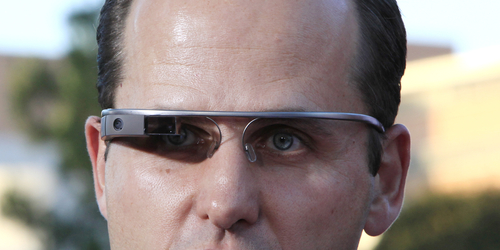 This week, Google opened Google Glass sales to the general public for one day only and before the day ended the limited supply of Glass devices that Google offered sold out. While there is clearly some demand for the wearable device, another camp is more skeptical about the role Google Glass will play in the life of consumers and professionals.
This week, Google opened Google Glass sales to the general public for one day only and before the day ended the limited supply of Glass devices that Google offered sold out. While there is clearly some demand for the wearable device, another camp is more skeptical about the role Google Glass will play in the life of consumers and professionals.
One prediction is that Google Glass will find greater success in professional settings, like in healthcare facilities as tools for physicians and other staff. While it’s still unclear whether Google Glass will be a viable long-term option for either healthcare providers or consumers, Google Glass has already inspired a handful of entrepreneurs to launch start-ups focused wholly on a Glass-enabled offering for physicians.
Beth Israel Deaconess Hospital Chief Innovation Officer John Halamka told MobiHealthNews in a recent interview that Glass could have the potential to be the new iPad. Beth Israel is also working with a startup called Wearable Intelligence that develops enterprise offerings using Google Glass, which Halamka has used while working in the emergency department. The startup has developed multiple apps for Glass that will help providers in an doctor’s office setting.
One program, Director, aims to improve workflow for doctors. It can be used to dictate messages or retrieve information from clinical systems. Mentor, another program, allows healthcare providers to take point-of-view videos and photos that they can sent to colleagues who will consult the information and provide recommendations. And Informant offers near-realtime data to the clinician while he is with a patient so that the clinician can have contextual information about the patient while he or she is treating the patient.
Another company, Pristine, advertises the fact that it offers a stripped-down version of Glass in order to keep it HIPAA compliant. So far, the company has launched two products, EyeSight and CheckLists. EyeSight streams near-real time audio and video from Glass to authorized iOS devices, Android devices, Macs, and PCs so that, among other uses, wound care nurses can transmit point-of-view video to a physician, emergency responders can send relevant video and information to hospital staff who are preparing to treat the patient, and surgeons can send a livestream of a surgery from their point of view to residents, fellows, and surgeons at other medical centers.
[button link=”http://mobihealthnews.com/32170/at-least-four-startups-are-now-focused-on-google-glass-apps-for-doctors/” color=”silver” window=”yes”]Click here to read more![/button]
Source: www.mobihealthnews.com; Aditi Pai; April 17, 2014.






